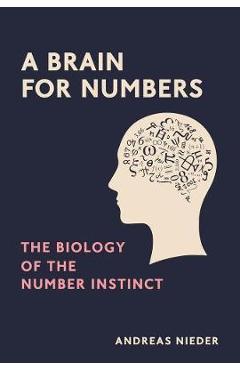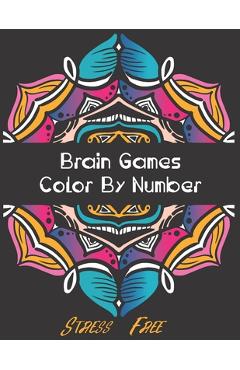Brain for Numbers - Andreas Nieder

Detalii Brain for Numbers - Andreas
libris.ro
174.08 Lei
217.6 Lei
Science
Andreas Nieder
Brain for Numbers - Andreas - Disponibil la libris.ro
Pe YEO găsești Brain for Numbers - Andreas de la Andreas Nieder, în categoria Science.
Indiferent de nevoile tale, Brain for Numbers - Andreas Nieder din categoria Science îți poate aduce un echilibru perfect între calitate și preț, cu avantaje practice și moderne.
Preț: 174.08 Lei
Caracteristicile produsului Brain for Numbers - Andreas
- Brand: Andreas Nieder
- Categoria: Science
- Magazin: libris.ro
- Ultima actualizare: 25-10-2024 01:12:27
Comandă Brain for Numbers - Andreas Online, Simplu și Rapid
Prin intermediul platformei YEO, poți comanda Brain for Numbers - Andreas de la libris.ro rapid și în siguranță. Bucură-te de o experiență de cumpărături online optimizată și descoperă cele mai bune oferte actualizate constant.
Descriere magazin:
How our intuitive understanding of numbers is deeply rooted in our biology, traceable through both evolution and development. Humans' understanding of numbers is intuitive. Infants are able to estimate and calculate even before they learn the words for numbers. How have we come to possess this talent for numbers? In A Brain for Numbers, Andreas Nieder explains how our brains process numbers. He reports that numerical competency is deeply rooted in our biological ancestry; it can be traced through both the evolution of our species and the development of our individual minds. It is not, as it has been traditionally explained, based on our ability to use language. We owe our symbolic mathematical skills to the nonsymbolic numerical abilities that we inherited from our ancestors. The principles of mathematics, Nieder tells us, are reflections of the innate dispositions wired into the brain. Nieder explores how the workings of the brain give rise to numerical competence, tracing flair for numbers to dedicated "number neurons" in the brain. Drawing on a range of methods including brain imaging techniques, behavioral experiments, and twin studies, he outlines a new, integrated understanding of the talent for numbers. Along the way, he compares the numerical capabilities of humans and animals, and discusses the benefits animals reap from such a capability. He shows how the neurobiological roots of the brain's nonverbal quantification capacity are the evolutionary foundation of more elaborate numerical skills. He discusses how number signs and symbols are represented in the brain; calculation capability and the "neuromythology" of mathematical genius; the "start-up tools" for counting and developmental of dyscalculia (a number disorder analogous to the reading disorder dyslexia); and how the brain processes the abstract concept of zero.

Produse asemănătoare

Alan Turing\'s Number Puzzles for Kids. 109 Brain-Boosting Activities, Paperback/Eric Saunders
![]() elefant.ro
elefant.ro
Actualizat in 02/07/2025
35.99 Lei

Train Your Brain! Number Puzzles. 100 Brain-Boosting Games for Smart Kids, Paperback/Lisa Regan
![]() elefant.ro
elefant.ro
Actualizat in 02/07/2025
91.99 Lei

Number Games for Adults. Smart Puzzles and Brain Teasers to Challenge Your IQ, Paperback/Dr Gareth Moore
![]() elefant.ro
elefant.ro
Actualizat in 02/07/2025
55.99 Lei

